
Bukit Lawang: Gateway to the Wild Heart of Sumatra
Nestled on the edge of Gunung Leuser National Park, Bukit Lawang is a hidden gem in North Sumatra, Indonesia. This charming village is known for its lush rainforests, diverse wildlife, and serene river landscapes, making it a haven for nature enthusiasts and adventure seekers alike. Bukit Lawang is most famous for its orangutan rehabilitation center, where visitors can observe these gentle giants in their natural habitat. The center provides a unique opportunity to learn about orangutan conservation efforts while witnessing these magnificent creatures up close. Jungle trekking is a popular activity here, offering a chance to explore the dense forests, spot various wildlife species, and experience the raw beauty of the Sumatran wilderness. The Bohorok River runs through Bukit Lawang, providing a picturesque setting for relaxation and outdoor activities. Tourists can enjoy tubing down the river, swimming in its clear waters, or simply lounging by its banks. The village itself is a welcoming place, with friendly locals, cozy guesthouses, and a range of eateries serving delicious Indonesian cuisine. Bukit Lawang is a perfect blend of adventure and tranquility, making it an unforgettable destination for those seeking an authentic connection with nature.
Local tips in Bukit Lawang
- Visit during the dry season (May to September) for the best trekking conditions.
- Hire a local guide for jungle treks to enhance your experience and ensure safety.
- Bring insect repellent and wear long sleeves to protect against mosquitoes.
- Carry enough cash as there are limited ATMs in the area.
- Respect wildlife and maintain a safe distance from orangutans.
Bukit Lawang: Gateway to the Wild Heart of Sumatra
Nestled on the edge of Gunung Leuser National Park, Bukit Lawang is a hidden gem in North Sumatra, Indonesia. This charming village is known for its lush rainforests, diverse wildlife, and serene river landscapes, making it a haven for nature enthusiasts and adventure seekers alike. Bukit Lawang is most famous for its orangutan rehabilitation center, where visitors can observe these gentle giants in their natural habitat. The center provides a unique opportunity to learn about orangutan conservation efforts while witnessing these magnificent creatures up close. Jungle trekking is a popular activity here, offering a chance to explore the dense forests, spot various wildlife species, and experience the raw beauty of the Sumatran wilderness. The Bohorok River runs through Bukit Lawang, providing a picturesque setting for relaxation and outdoor activities. Tourists can enjoy tubing down the river, swimming in its clear waters, or simply lounging by its banks. The village itself is a welcoming place, with friendly locals, cozy guesthouses, and a range of eateries serving delicious Indonesian cuisine. Bukit Lawang is a perfect blend of adventure and tranquility, making it an unforgettable destination for those seeking an authentic connection with nature.
When is the best time to go to Bukit Lawang?
Iconic landmarks you can’t miss
Wisata Alam Bukit Lawang
Discover Bukit Lawang, a natural paradise in North Sumatra, home to lush rainforests and vibrant wildlife, including the famous orangutans.
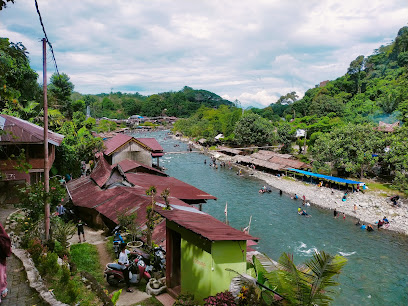
Ecolodge Bukit Lawang Cottages
Discover the tranquility of nature at Ecolodge Bukit Lawang Cottages, your eco-friendly retreat in the heart of North Sumatra's lush landscapes.

Bukit Lawang-Jungle Trekking
Experience the breathtaking jungles and vibrant wildlife of Bukit Lawang, the ultimate destination for jungle trekking and eco-adventures in North Sumatra.
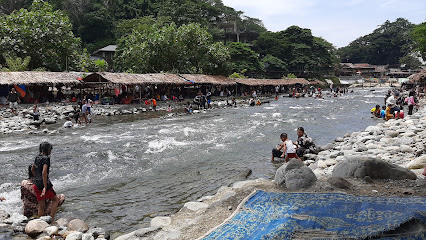
Jungle Inn and Restaurant
Discover the lush tranquility of Jungle Inn and Restaurant in Bukit Lawang, a perfect blend of adventure and serene relaxation in North Sumatra.
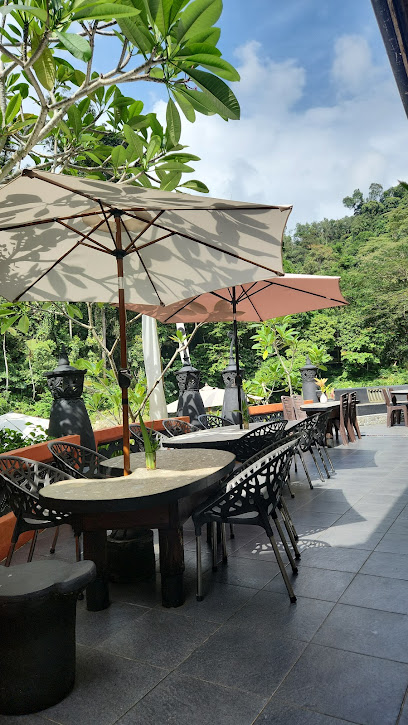
Landak River
Discover the breathtaking beauty and adventure of Landak River in North Sumatra, a must-visit destination for nature lovers and thrill-seekers alike.
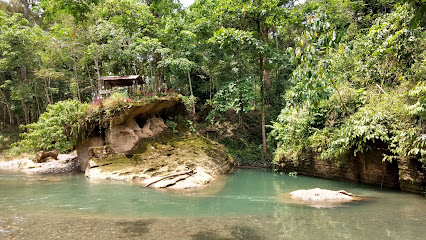
Sumatra EcoTravel Bukit Lawang - Tours & Treks
Explore Bukit Lawang's breathtaking jungles and experience unforgettable wildlife encounters with Sumatra EcoTravel's expert-guided tours.
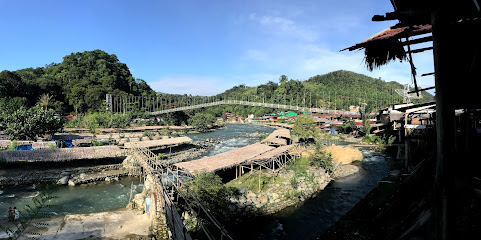
Thomas' Retreat
Discover the beauty of North Sumatra at Thomas' Retreat, your serene escape surrounded by lush jungles and vibrant wildlife.

Sumatra Orangutan Explore
Discover the enchanting world of orangutans in North Sumatra with Sumatra Orangutan Explore, where adventure meets conservation in breathtaking jungles.
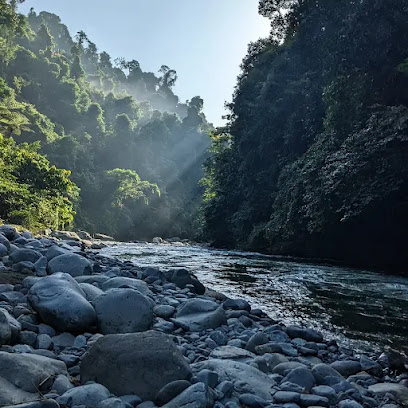
Bukit Lawang Orangutan Trekking
Discover Bukit Lawang: Home to the magnificent orangutans and lush tropical rainforests in North Sumatra, a paradise for nature enthusiasts.
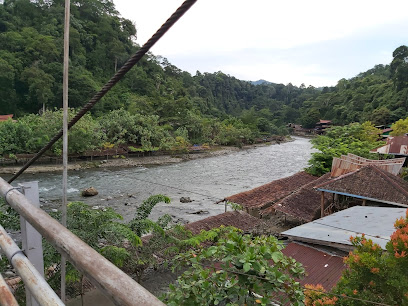
Bukit Lawang Travel
Explore the lush beauty of Bukit Lawang, where adventure meets tranquility in the heart of North Sumatra's rainforest.
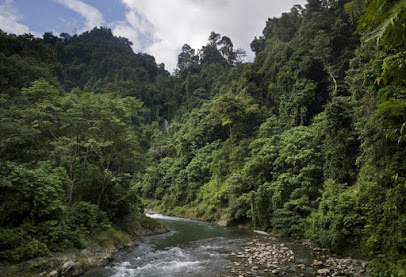
Garden Inn & Restaurant
Experience the tranquility of Bukit Lawang at Garden Inn & Restaurant, where local flavors and stunning rainforest views await every traveler.
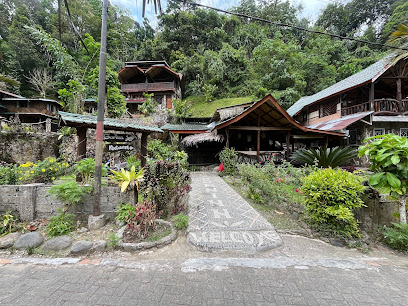
On The Rocks Bungalow
Discover the enchanting flavors of Balinese cuisine amid the natural beauty of North Sumatra at On The Rocks Bungalow.
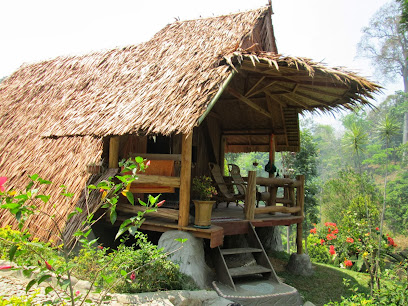
Junia Guesthouse
Discover adventure and tranquility at Junia Guesthouse in Bukit Lawang, your ideal base for exploring the lush jungles and wildlife of North Sumatra.
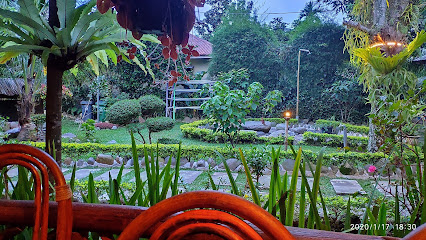
Bukit Lawang - Jungle Trekking - Sumatra
Discover the enchanting wilderness of Bukit Lawang, where jungle trekking meets vibrant wildlife experiences in North Sumatra.
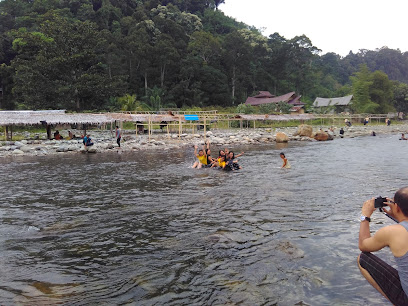
Trekking Orangutan Sumatra
Explore the lush jungles of Sumatra and witness the incredible orangutans in their natural habitat at Trekking Orangutan Sumatra.
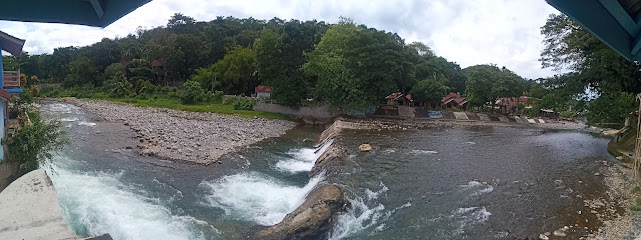
Unmissable attractions to see
Landak River
Explore Landak River, a tranquil oasis in North Sumatra, where adventure meets serenity in nature's embrace.
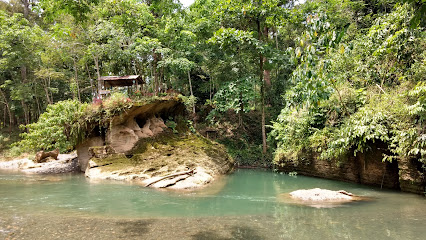
Wisata Batu Katak
Explore the breathtaking landscapes and rich biodiversity of Wisata Batu Katak, a top ecotourism destination in North Sumatra, Indonesia.
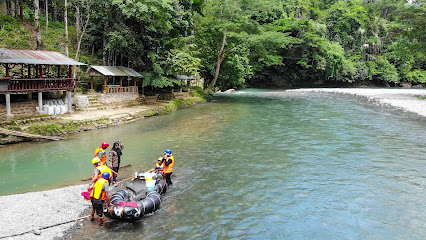
Bukit Lawang Orangutan Trekking
Discover the enchanting wildlife and breathtaking landscapes of Bukit Lawang, North Sumatra, a premier destination for eco-tourism and orangutan trekking.
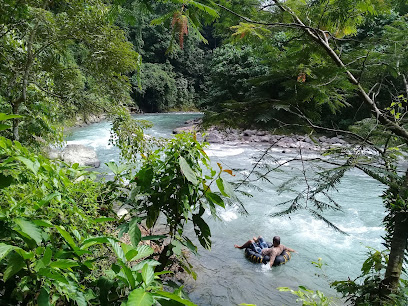
Trekking Orangutan Sumatra
Discover the awe-inspiring beauty of the Sumatran rainforest at Trekking Orangutan Sumatra—an unforgettable adventure awaits every nature lover.
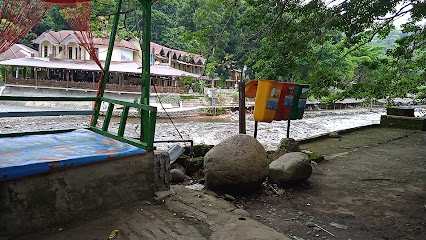
Bukit Lawang Conservasi
Experience the breathtaking beauty of Bukit Lawang Conservasi, a sanctuary for wildlife and adventure in North Sumatra's lush rainforests.
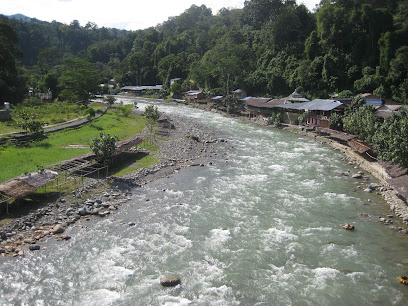
Bat Cave Bukit Lawang
Explore the enchanting Bat Cave Bukit Lawang, where stunning limestone formations and diverse wildlife await in North Sumatra's lush rainforest.
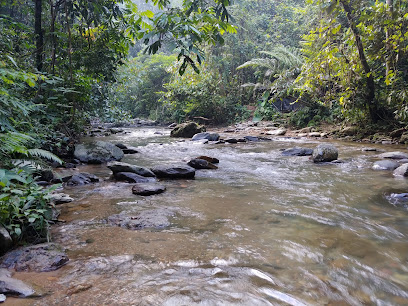
Landak river- bukit Lawang
Immerse yourself in the natural beauty and wildlife of the Landak River in Bukit Lawang, a top destination for adventure seekers and nature lovers.
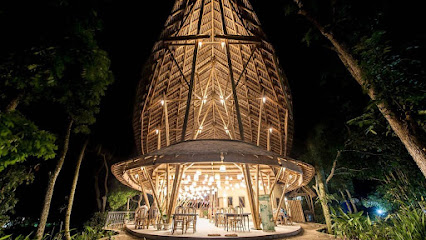
Recycling Village
Explore Recycling Village in North Sumatra, where art meets sustainability in a vibrant community dedicated to eco-friendly practices and creative expression.
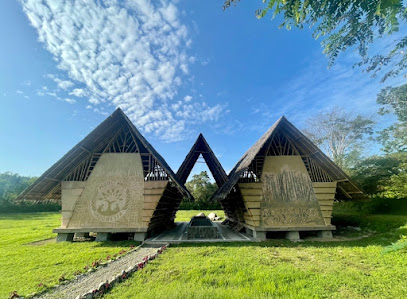
Rindu alam bukit lawang
Explore the stunning landscapes and vibrant wildlife of Rindu Alam Bukit Lawang in North Sumatra, a paradise for nature lovers and adventure seekers alike.
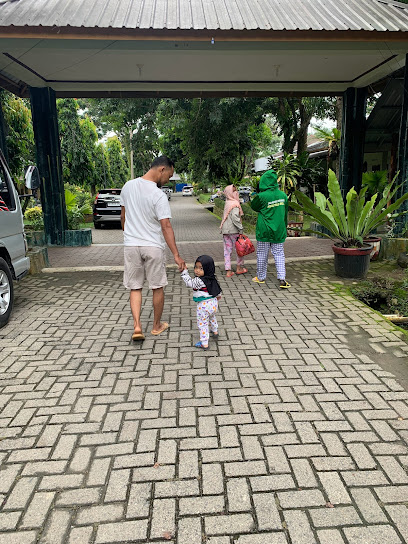
Bukit lawang planet hijau
Experience the breathtaking beauty of Bukit Lawang, an eco-tourism haven in North Sumatra, where adventure and nature come together.
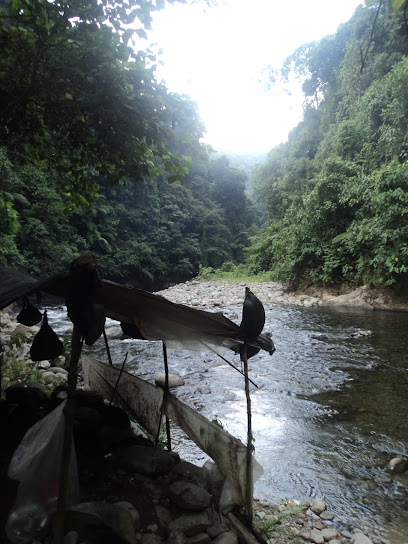
Kampong Wisata Landbouw
Explore Kampong Wisata Landbouw: Immerse yourself in the beauty of traditional Indonesian agriculture and culture in North Sumatra.
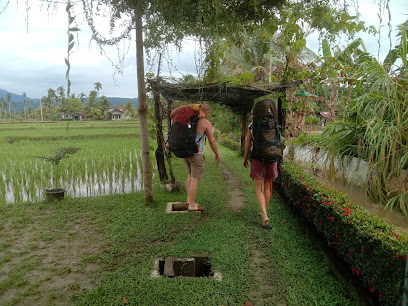
Kupu Kupu Jungle Trekking Bukit Lawang
Discover the wonders of Sumatra at Kupu Kupu Jungle Trekking Bukit Lawang, where adventure meets nature in a breathtaking rainforest setting.
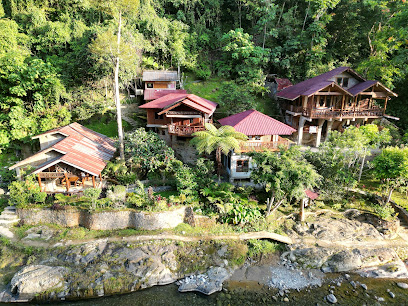
Kuta Langis Ecolodge
Discover the enchanting beauty of North Sumatra at Kuta Langis Ecolodge, where adventure meets eco-friendly hospitality amidst stunning natural landscapes.
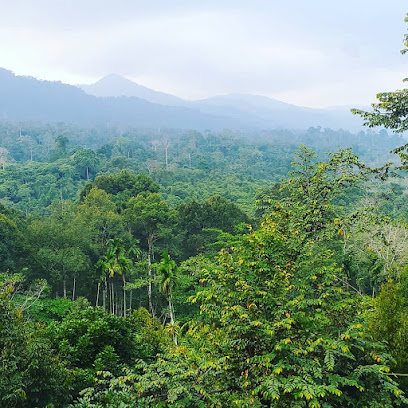
Lubuk Samsah, Sungai Landak, Bohorok
Explore the breathtaking beauty of Lubuk Samsah in North Sumatra, a hidden gem perfect for nature lovers and adventure seekers.
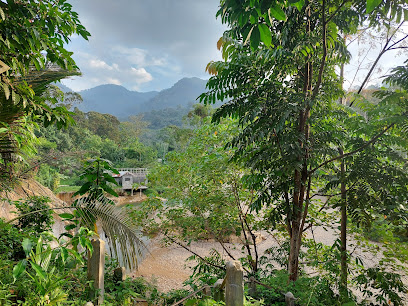
Botanical Garden
Discover the beauty of nature at Bukit Lawang's Botanical Garden, a serene oasis filled with vibrant flora and rich biodiversity.
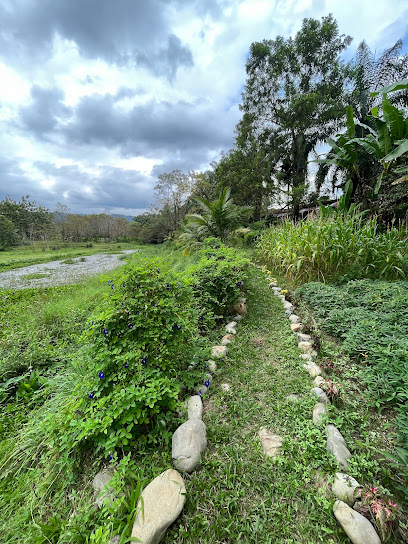
Essential places to dine
Jungle Inn and Restaurant
Discover the flavors of North Sumatra at Jungle Inn & Restaurant - where culinary delights meet breathtaking jungle scenery.
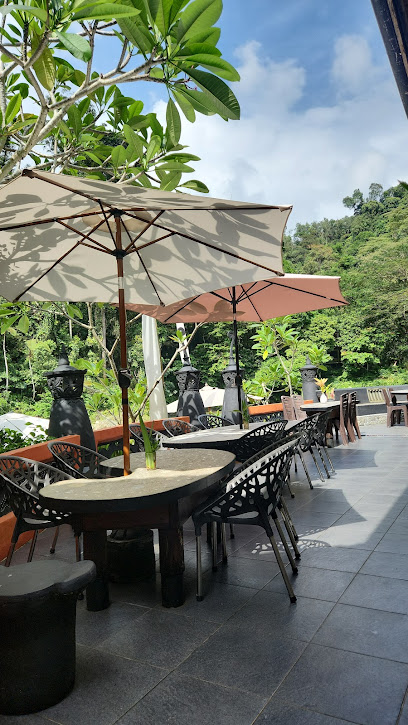
The Heritage Resort & Restaurant Bukit Lawang
Experience nature's beauty at The Heritage Resort & Restaurant Bukit Lawang - where comfort meets adventure in North Sumatra.
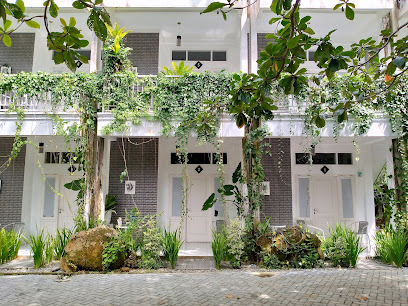
Eco Lodge Bambu Restaurant
Experience authentic Indonesian cuisine surrounded by lush landscapes at Eco Lodge Bambu Restaurant in North Sumatra.
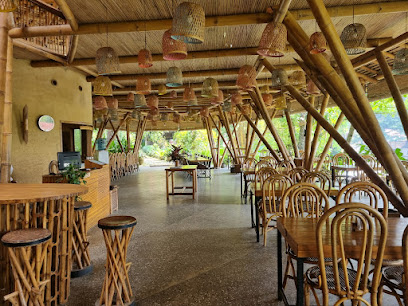
Garden Inn & Restaurant
Experience authentic Indonesian cuisine and cozy accommodations at Garden Inn & Restaurant in Bukit Lawang – your gateway to nature's wonders.

Ida Guest House & Restaurant Bukit Lawang RedPartner
Experience authentic Indonesian cuisine and warm hospitality at Ida Guest House & Restaurant in the heart of Bukit Lawang.

My Resto
Discover authentic Indonesian cuisine at My Resto in Bukit Lawang – where every meal is a journey into local flavors.
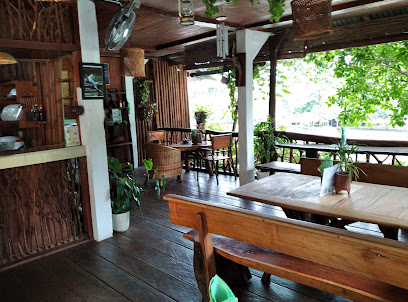
Yusricafe
Discover authentic Indonesian flavors at Yusricafe in Bukit Lawang - where every meal is an unforgettable culinary journey.
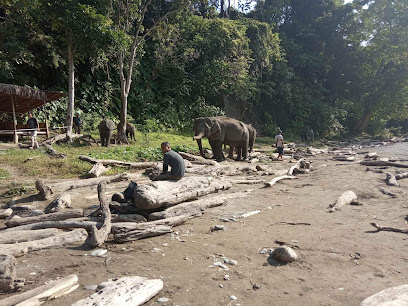
Cave Rock Cafe
Experience authentic Indonesian flavors at Cave Rock Cafe, where nature meets culinary excellence in beautiful Bukit Lawang.
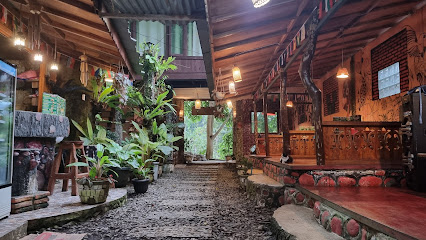
Wild River Cafe
Discover authentic Indonesian cuisine surrounded by nature at Wild River Cafe in Bukit Lawang.
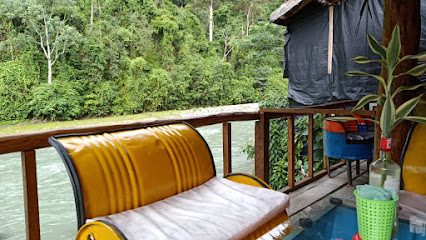
Raimah br sbr
Discover authentic Indonesian cuisine at Raimah br sbr in Bukit Lawang – where flavor meets nature in North Sumatra.
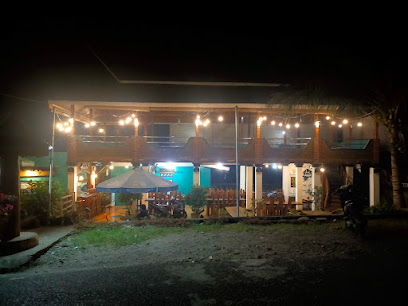
Rumah Makan Bu'De
Savor traditional Indonesian dishes at Rumah Makan Bu'De in Bukit Lawang – a culinary journey through North Sumatra's rich flavors.
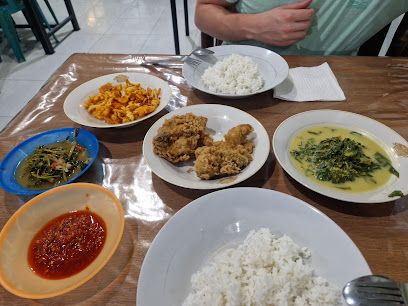
Warung Oren
Experience authentic Indonesian flavors at Warung Oren in Bukit Lawang – a culinary gem surrounded by nature's beauty.
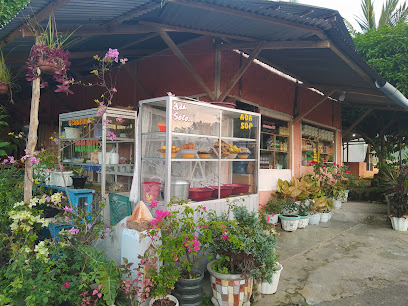
Waring Tasya
Experience authentic Indonesian flavors at Waring Tasya in Bukit Lawang amidst breathtaking natural beauty.

MOSES GINTING
Experience authentic North Sumatran cuisine at Moses Ginting in Bukit Lawang, where every dish tells a story of tradition and flavor.
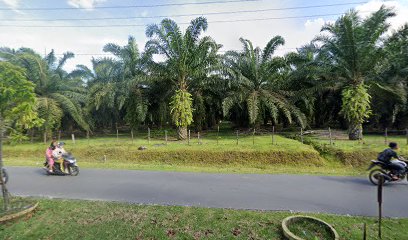
Yusri cafe
Discover authentic Indonesian cuisine at Yusri Cafe in Bukit Lawang, where every dish tells a story amid breathtaking natural beauty.

Markets, malls and hidden boutiques
Bukit Lawang-Jungle Trekking
Discover the breathtaking jungles of Bukit Lawang, where thrilling treks lead to encounters with orangutans and vibrant wildlife in North Sumatra.
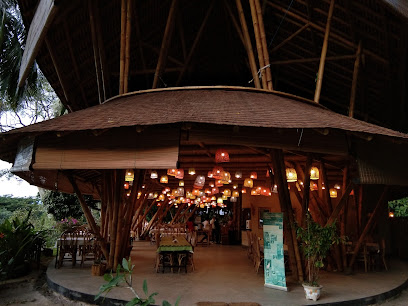
Sumatra EcoTravel Bukit Lawang - Tours & Treks
Explore Bukit Lawang's Natural Beauty with Sumatra EcoTravel – Your Gateway to Rainforest Adventures!
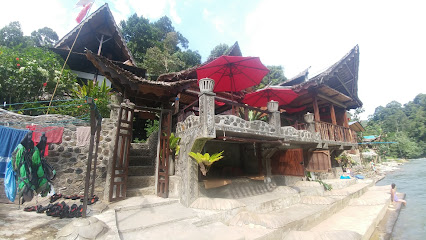
Sumatra Orangutan Explore
Discover the wild beauty of North Sumatra with unforgettable tours at Sumatra Orangutan Explore, where adventure meets conservation.
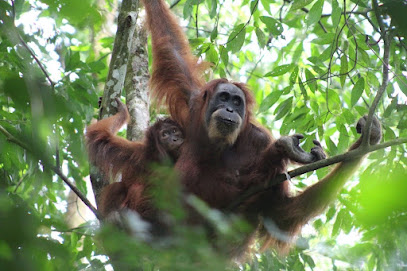
On The Rocks Bungalow
Discover the perfect fusion of Balinese cuisine and serene accommodations at On The Rocks Bungalow in North Sumatra.
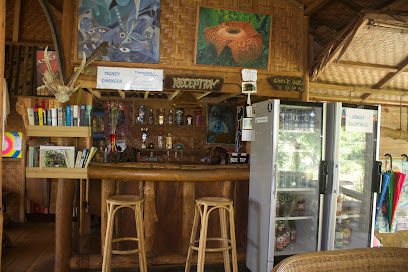
Indomaret Timbang Jaya
Discover convenience and local flavors at Indomaret Timbang Jaya in North Sumatra, the perfect stop for all your travel needs.
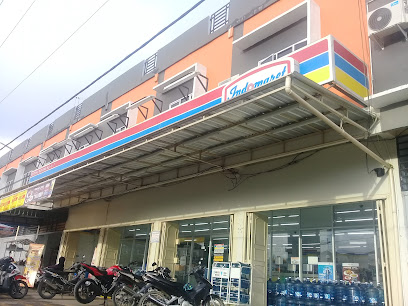
Pajak Gotong Royong
Discover the charm of Pajak Gotong Royong, a traditional market in Bukit Lawang showcasing fresh produce, local delicacies, and vibrant culture.
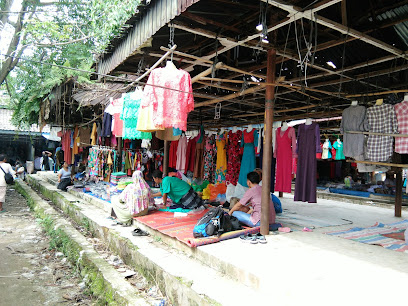
Bukit Lawang Adventure
Discover the breathtaking rainforests, wildlife encounters, and thrilling adventures at Bukit Lawang Adventure, North Sumatra's gem in eco-tourism.
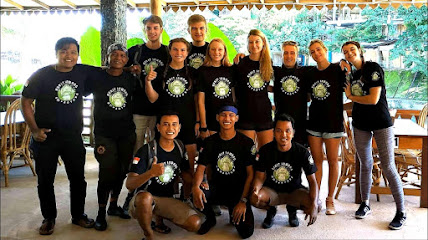
Saljucoffee shop
Explore the serene vibes of Bukit Lawang at Saljucoffee Shop, where fresh coffee meets lush nature for an unforgettable experience.
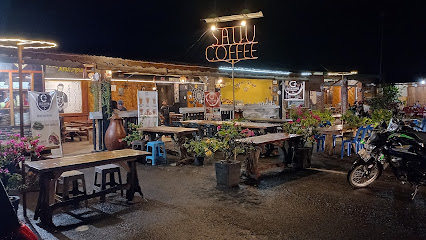
Bukit Lawang
Discover Bukit Lawang: A gateway to lush jungles, diverse wildlife, and thrilling eco-adventures in North Sumatra's breathtaking landscapes.

Bukit Lawang Tour
Explore Bukit Lawang's breathtaking jungles and rich biodiversity, the ultimate destination for nature lovers and adventure seekers in North Sumatra, Indonesia.
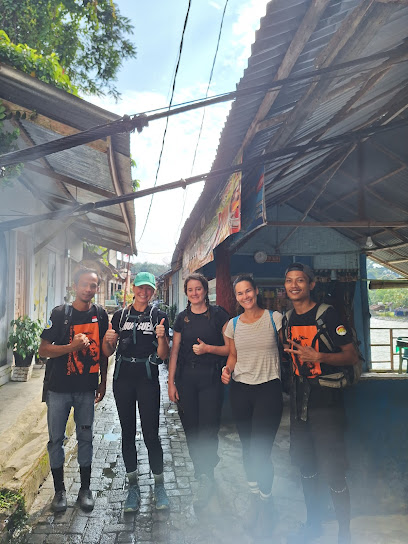
Masno Education Cafe
Discover the perfect blend of coffee and community at Masno Education Cafe, a unique spot in North Sumatra for relaxation and learning.
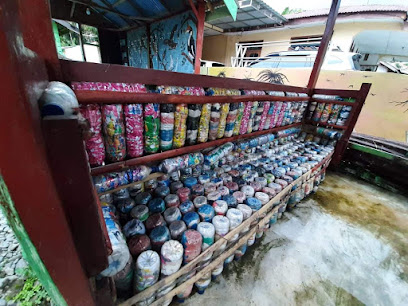
Garden Grove Coffee Bar and Guest House
Discover comfort and delightful coffee at Garden Grove Coffee Bar and Guest House in the enchanting Bukit Lawang, North Sumatra.
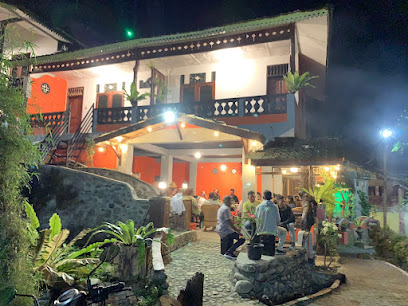
Gerda's Cake
Explore the sweet side of Bukit Lawang at Gerda's Cake, where every bite is a delightful journey through local flavors and baked wonders.
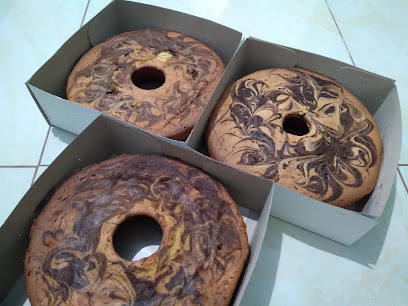
Alfamart Bukit Lawang
Discover Alfamart Bukit Lawang - your essential convenience store for snacks, drinks, and everyday items while exploring North Sumatra.
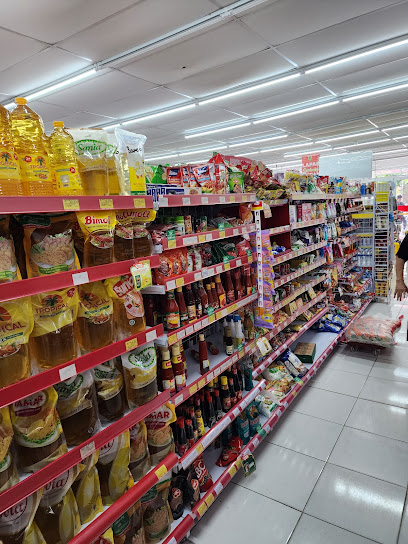
PEKAN SUNGE LANDAK
Discover the vibrant shopping experience at PEKAN SUNGE LANDAK, North Sumatra's premier mall offering local crafts, international brands, and delicious dining.
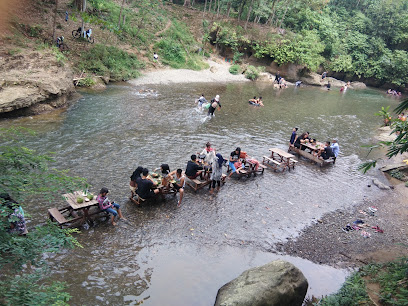
Essential bars & hidden hideouts
On The Rocks Bungalow
Experience the serene beauty and authentic Balinese cuisine at On The Rocks Bungalow in North Sumatra, a perfect retreat for food lovers.
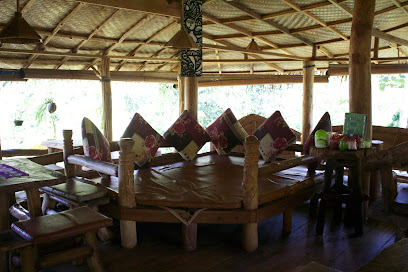
HOTEL Orangutan Restaurant & BAR
Experience the flavors of Sumatra at HOTEL Orangutan Restaurant & BAR, where nature meets culinary delight.

My Resto
Experience the authentic flavors of North Sumatra at My Resto in Bukit Lawang, where nature meets culinary excellence.
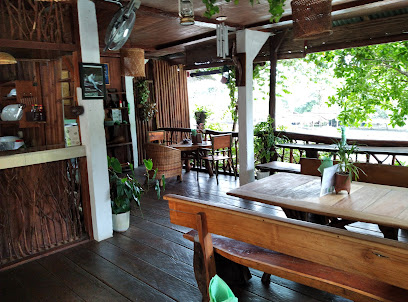
Yusricafe
Discover the authentic taste of Indonesia at Yusricafe, nestled in the scenic Bukit Lawang, offering a delightful menu amidst stunning natural beauty.
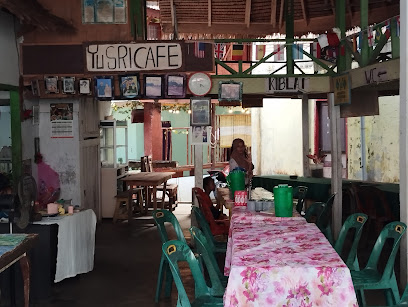
Cave Rock Cafe
Discover the flavors of North Sumatra at Cave Rock Cafe, where nature meets culinary excellence in the heart of Bukit Lawang.
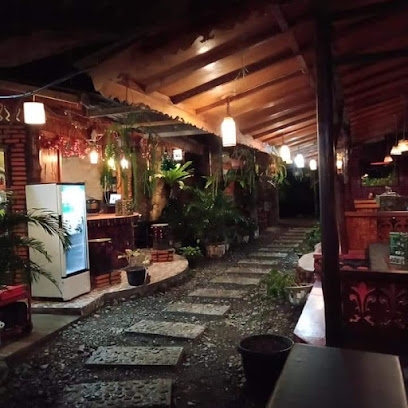
Wild River Cafe
Discover the exquisite flavors of Wild River Cafe in Bukit Lawang, a serene dining spot amidst breathtaking nature and delicious cuisine.
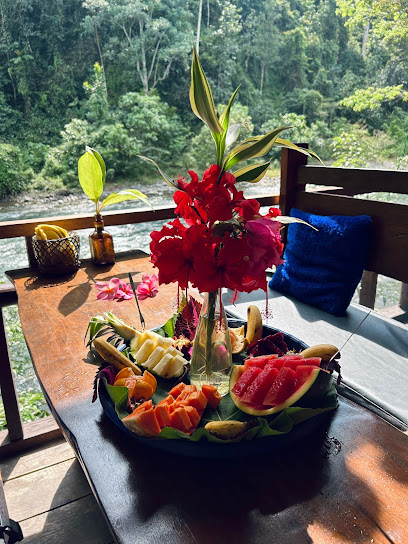
Jack's Bar
Experience the vibrant atmosphere and delicious cocktails at Jack's Bar in Bukit Lawang, North Sumatra, a must-visit for every traveler.
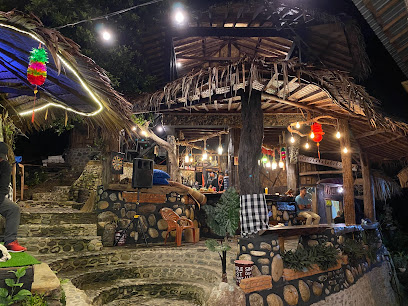
Coffee Time
Discover the serene charm of Coffee Time in Bukit Lawang, where aromatic coffees and local delicacies await amidst stunning natural beauty.
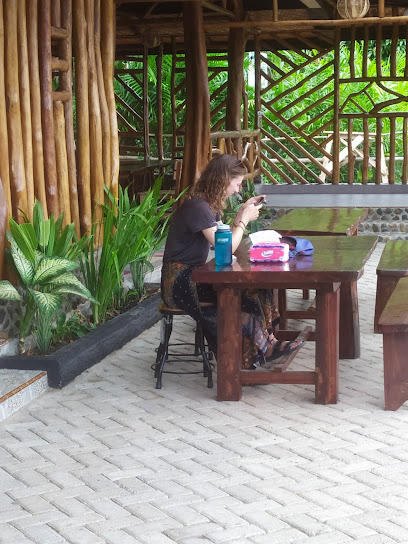
Umi Yuki Restaurant
Discover a true taste of Indonesia at Umi Yuki Restaurant in Bukit Lawang, where fresh ingredients meet stunning natural beauty.
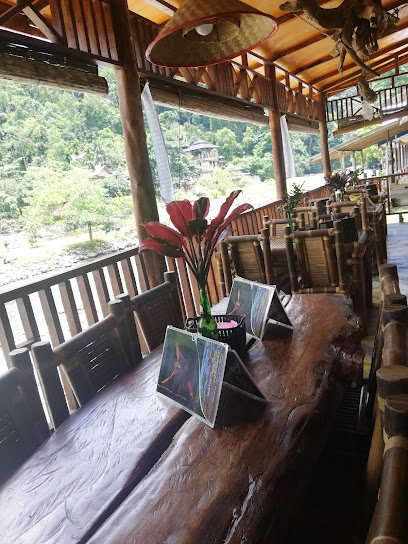
Ricky's Bar (RNB)
Experience vibrant nightlife and local flavors at Ricky's Bar in Bohorok, North Sumatra - a perfect spot for relaxation and socializing.
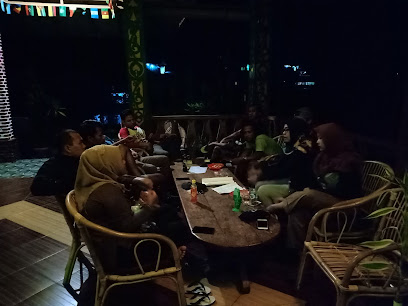
Mini Bar 25
Discover the vibrant karaoke scene and cozy hostel experience at Mini Bar 25 in Bukit Lawang, North Sumatra, a perfect blend of fun and relaxation.
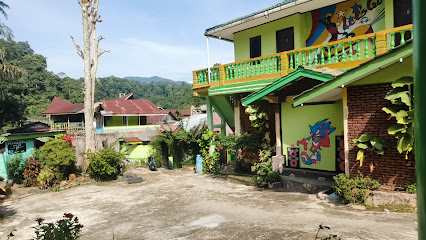
Romo Caffe Room & Restaurant Bukit Lawang
Explore the culinary delights at Romo Caffe Room & Restaurant in Bukit Lawang, where local flavors meet a stunning tropical setting.
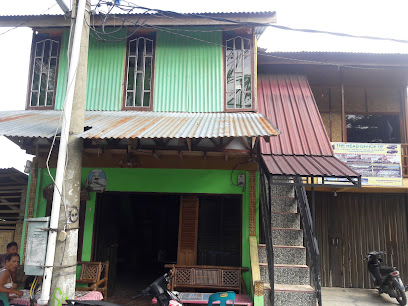
YAAHOWU
Discover the authentic flavors of Indonesia at YAAHOWU, a culinary gem nestled in the lush landscapes of Bukit Lawang, North Sumatra.
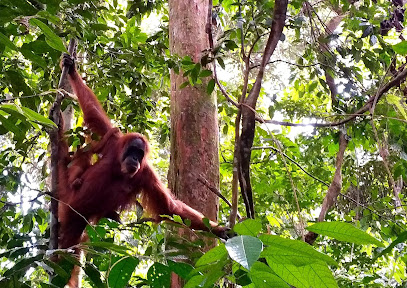
Cempedek goreng bukit lawang
Discover the flavors of Indonesia at Cempedek Goreng Bukit Lawang, where culinary tradition meets breathtaking nature.
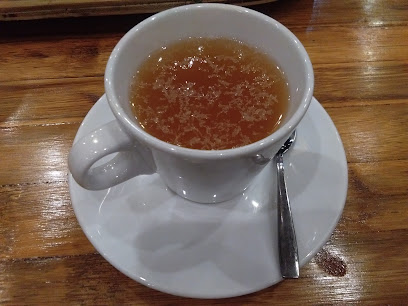
MUSLii MUKY BUNGALOW AND RESTAURANT
Savor authentic Indonesian cuisine amidst the breathtaking scenery of Bukit Lawang at MUSLii MUKY BUNGALOW AND RESTAURANT.
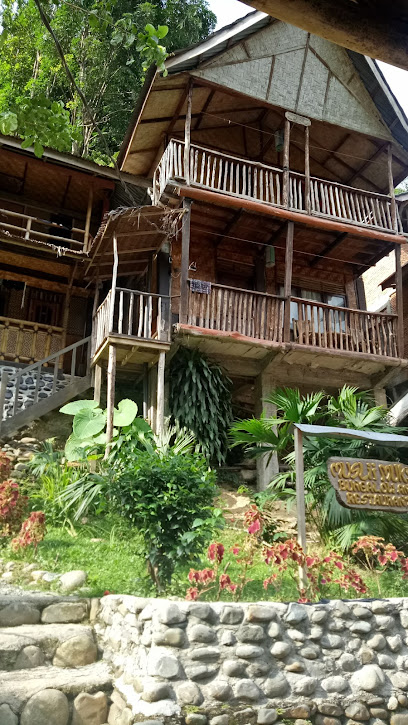
Local Phrases about Bukit Lawang
-
- HelloHoras
[ho-ras] - GoodbyeHoras mauliate
[ho-ras mau-li-a-te] - YesIya
[i-ya] - NoTidak
[ti-dak] - Please/You're welcomeSama-sama
[sa-ma-sa-ma] - Thank youTerima kasih
[te-ri-ma ka-sih] - Excuse me/SorryMaaf
[ma-af] - How are you?Apa kabar?
[a-pa ka-bar] - Fine. And you?Baik. Bagaimana dengan Anda?
[ba-ik. ba-gai-ma-na den-gan an-da] - Do you speak English?Bisa bicara bahasa Inggris?
[bi-sa bi-ca-ra ba-ha-sa ing-gris] - I don't understandSaya tidak mengerti
[sa-ya ti-dak men-ger-ti]
- HelloHoras
-
- I'd like to see the menu, pleaseBisa saya lihat menu, tolong
[bi-sa sa-ya li-hat me-nu, to-long] - I don't eat meatSaya tidak makan daging
[sa-ya ti-dak ma-kan da-ging] - Cheers!Selamat minum!
[se-la-mat mi-num] - I would like to pay, pleaseSaya ingin membayar, tolong
[sa-ya in-gin mem-ba-yar, to-long]
- I'd like to see the menu, pleaseBisa saya lihat menu, tolong
-
- Help!Tolong!
[to-long] - Go away!Pergi!
[per-gi] - Call the Police!Panggil polisi!
[pang-gil po-li-si] - Call a doctor!Panggil dokter!
[pang-gil dok-ter] - I'm lostSaya tersesat
[sa-ya ter-se-sat] - I'm illSaya sakit
[sa-ya sa-kit]
- Help!Tolong!
-
- I'd like to buy...Saya ingin membeli...
[sa-ya in-gin mem-be-li...] - I'm just lookingSaya hanya melihat-lihat
[sa-ya han-ya me-li-hat-li-hat] - How much is it?Berapa harganya?
[ber-a-pa har-ga-nya] - That's too expensiveItu terlalu mahal
[i-tu ter-la-lu ma-hal] - Can you lower the price?Bisa kurangi harganya?
[bi-sa ku-ran-gi har-ga-nya]
- I'd like to buy...Saya ingin membeli...
-
- What time is it?Jam berapa sekarang?
[jam ber-a-pa se-ka-rang] - It's one o'clockSekarang pukul satu
[se-ka-rang pu-kul sa-tu] - Half past (10)Setengah (sepuluh)
[se-ten-gah (se-pu-luh)] - MorningPagi
[pa-gi] - AfternoonSiang
[si-ang] - EveningSore
[so-re] - YesterdayKemarin
[ke-ma-rin] - TodayHari ini
[ha-ri i-ni] - TomorrowBesok
[be-sok] - 1Satu
[sa-tu] - 2Dua
[du-a] - 3Tiga
[ti-ga] - 4Empat
[em-pat] - 5Lima
[li-ma] - 6Enam
[e-nam] - 7Tujuh
[tu-juh] - 8Delapan
[de-la-pan] - 9Sembilan
[sem-bi-lan] - 10Sepuluh
[se-pu-luh]
- What time is it?Jam berapa sekarang?
-
- Where's a/the...?Dimana...
[di-ma-na] - What's the address?Apa alamatnya?
[a-pa a-la-mat-nya] - Can you show me (on the map)?Bisa tunjukkan saya (di peta)?
[bi-sa tun-juk-kan sa-ya (di pe-ta)] - When's the next (bus)?Kapan bus berikutnya?
[ka-pan bus be-ru-ti-nya] - A ticket (to ....)Tiket (ke ....)
[ti-ket (ke)]
- Where's a/the...?Dimana...
History of Bukit Lawang
-
Bukit Lawang, nestled in the dense jungles of North Sumatra, has a rich history of early settlement by indigenous tribes, primarily the Batak people. The Batak tribes have lived in harmony with the lush environment for centuries, practicing sustainable farming and hunting methods. Their deep spiritual connection to the land and the surrounding wildlife is evident in their traditional ceremonies and rituals, which continue to be practiced to this day.
-
During the 19th century, Bukit Lawang and the broader region of Sumatra came under Dutch colonial rule. The Dutch established plantations and extracted natural resources, significantly altering the local economy and landscape. The colonial period also brought about infrastructural developments, such as the construction of roads and railways, which facilitated access to the once remote area. However, this period was also marked by resistance from local tribes who opposed colonial exploitation.
-
In the mid-20th century, recognizing the unique biodiversity of the region, the Indonesian government, along with international conservation organizations, initiated efforts to protect the rainforest. This led to the establishment of Gunung Leuser National Park in 1980, encompassing Bukit Lawang. The park is part of the UNESCO World Heritage-listed Tropical Rainforest Heritage of Sumatra. It serves as a sanctuary for numerous endangered species, including the Sumatran orangutan, rhinoceros, and tiger. Bukit Lawang became a key entry point for eco-tourism and conservation activities.
-
Bukit Lawang is renowned for its Orangutan Rehabilitation Center, established in 1973 by two Swiss zoologists, Regina Frey and Monica Boerner. The center's mission is to rehabilitate orphaned and displaced orangutans, preparing them for reintroduction into the wild. The rehabilitation project has played a crucial role in the conservation of Sumatran orangutans, drawing global attention and support. Visitors to Bukit Lawang can witness these magnificent creatures in their natural habitat, contributing to the center's ongoing conservation efforts.
-
On November 2, 2003, Bukit Lawang was struck by a devastating flash flood, caused by illegal logging activities upstream. The flood resulted in significant loss of life and property, profoundly impacting the local community and eco-tourism industry. In the aftermath, extensive rebuilding efforts were undertaken, and stricter regulations were enforced to prevent illegal logging and ensure the safety and sustainability of the area. The tragedy highlighted the delicate balance between human activity and environmental preservation.
-
Today, Bukit Lawang is a vibrant hub for eco-tourism and a testament to successful conservation efforts. The village thrives on tourism, with numerous guesthouses, restaurants, and tour operators offering jungle treks, river tubing, and wildlife watching experiences. The local community is deeply involved in promoting sustainable tourism practices, ensuring that Bukit Lawang remains a haven for future generations of both humans and wildlife. The rich cultural heritage of the Batak people continues to be an integral part of the area's identity, celebrated through traditional music, dance, and crafts.
Bukit Lawang Essentials
-
Bukit Lawang is located in North Sumatra, Indonesia, and is part of the Gunung Leuser National Park. The nearest major city is Medan, which has an international airport, Kualanamu International Airport (KNO). From Medan, you can take a private car, taxi, or public bus to Bukit Lawang. The journey typically takes around 3 to 4 hours. There are also minivans and tourist buses that offer a more comfortable and convenient option for travelers.
-
Bukit Lawang is a small village and most of its attractions are within walking distance. Local transportation options include becaks (motorized rickshaws) and ojeks (motorcycle taxis) for short trips. To explore nearby areas or for a more comfortable journey, you can hire a private car with a driver. Public buses and shared minivans are available for trips to Medan and other nearby towns.
-
The official currency in Indonesia is the Indonesian Rupiah (IDR). It is advisable to carry cash, as credit cards are not widely accepted in Bukit Lawang. ATMs are available, but they can be limited, so it is recommended to withdraw sufficient cash in Medan before traveling to Bukit Lawang. Some larger hotels and restaurants may accept credit cards, but smaller establishments typically do not.
-
Bukit Lawang is generally a safe destination for tourists. However, it is important to take standard precautions. Avoid walking alone at night in unfamiliar areas and keep an eye on your belongings in crowded places. While Bukit Lawang does not have specific high-crime areas targeting tourists, it is always best to stay vigilant and aware of your surroundings.
-
In case of emergency, dial 112 for immediate assistance. There is a small medical clinic in Bukit Lawang, but for serious medical emergencies, it is advisable to go to a hospital in Medan. It is recommended to have travel insurance that covers medical emergencies. For minor health issues, there are pharmacies in the village where you can purchase over-the-counter medications.
-
Fashion: Do dress modestly, especially when visiting villages and religious sites. Avoid wearing revealing clothing. Religion: Do respect local customs and traditions. Always ask for permission before taking photos of people or religious sites. Public Transport: Do be respectful and patient when using public transport. Don't expect punctuality. Greetings: Do greet people with a smile and a slight bow. A handshake may be used, but it is more common among men. Eating & Drinking: Do try local delicacies and accept food offerings graciously. Don't refuse hospitality, as it is considered impolite.
-
To experience Bukit Lawang like a local, visit the local markets where you can buy fresh produce and traditional Indonesian goods. Engage with locals, as they are often friendly and willing to share stories about the area’s history and culture. Don't miss the opportunity to go on a guided jungle trek to see the orangutans in their natural habitat. For a unique experience, take a tube ride down the Bohorok River.
Trending Landmarks in Bukit Lawang
-
Wisata Alam Bukit Lawang
-
Ecolodge Bukit Lawang Cottages
-
Bukit Lawang-Jungle Trekking
-
Jungle Inn and Restaurant
-
Landak River
-
Sumatra EcoTravel Bukit Lawang - Tours & Treks
-
Thomas' Retreat
-
Sumatra Orangutan Explore
-
Bukit Lawang Orangutan Trekking
-
Bukit Lawang Travel
-
Garden Inn & Restaurant
-
On The Rocks Bungalow
-
Junia Guesthouse
-
Bukit Lawang - Jungle Trekking - Sumatra
-
Trekking Orangutan Sumatra
Nearby Cities to Bukit Lawang
-
Things To Do in George Town
-
Things To Do in Penang
-
Things To Do in Ipoh
-
Things To Do in Langkawi
-
Things To Do in Cameron Highlands
-
Things To Do in Kuala Lumpur
-
Things To Do in Satun
-
Things To Do in Trang
-
Things To Do in Malacca
-
Things To Do in Phuket
-
Things To Do in Krabi
-
Things To Do in Kota Bharu
-
Things To Do in Kuantan
-
Things To Do in Nakhon Si Thammarat
-
Things To Do in Kuala Terengganu







